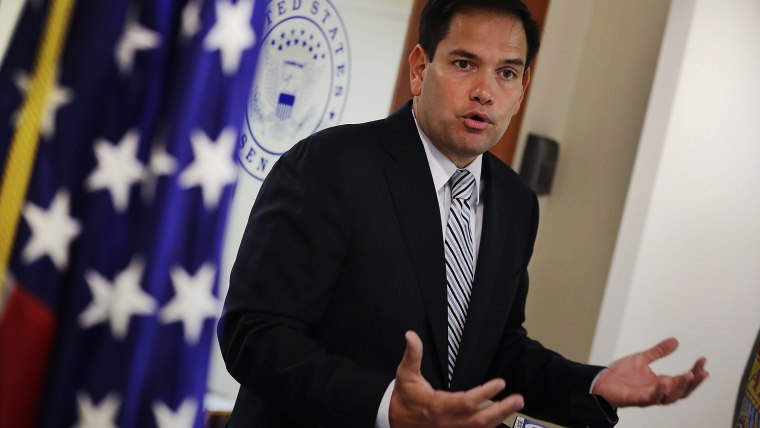After Donald Trump nominated Jim Bridenstine to lead NASA, Sen. Marco Rubio (R-Fla.) had the right instincts and opposed the nomination. Bridenstine was obviously unqualified, and the Republican senator said it "could be devastating for the space program" if the far-right Oklahoma congressman led the agency.
And then Rubio changed his mind and helped confirm Bridenstine to the post. Yesterday on the Senate floor, he explained why.
"My view of it is ... that we give great deference to the president on choosing qualifications. It is my view that, the more important the job, the more discretion the president deserves."
This is a terrible argument. The more important a position, the more the Senate should rubber-stamp a president's nominee? The significance of the Senate's advise-and-consent role is diminished when members are considering nominees of great import? All of this seems entirely backwards.
In fact, at a certain level, Rubio knows how absurd this is -- because he made the opposite argument last year:
"My view is that the president deserves wide latitude in their nominations, but the more important the position is, the less latitude they have."
Complicating matters, of course, is the fact that Rubio reflexively opposed many of Barack Obama's nominees for cabinet and other high-ranking posts -- even when the Floridian knew they'd be confirmed anyway -- because he had no interest in presidential "deference" or "discretion."
It's almost as if Rubio's principles are malleable and easily put aside for the sake of partisan convenience.
